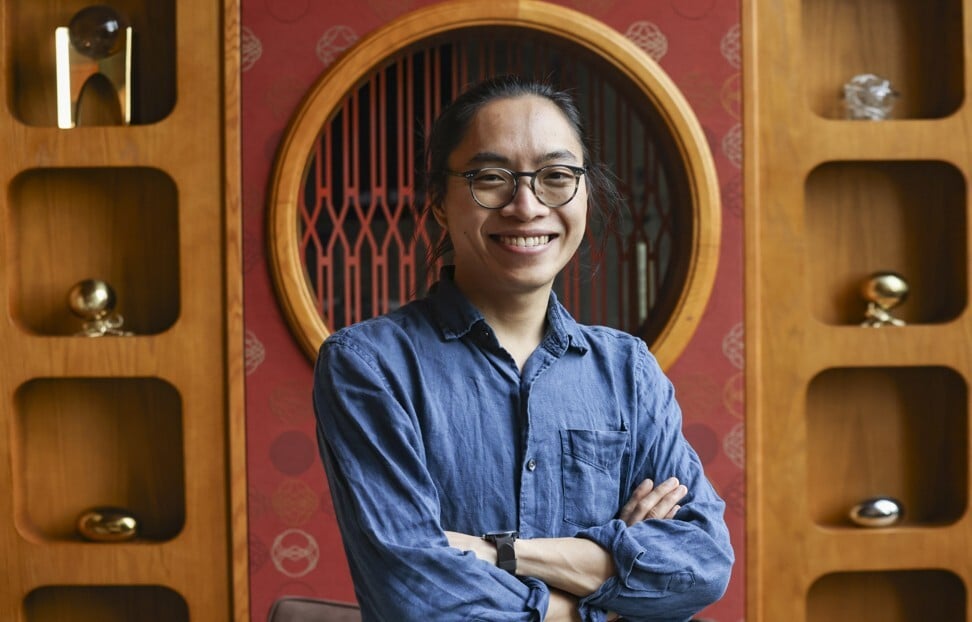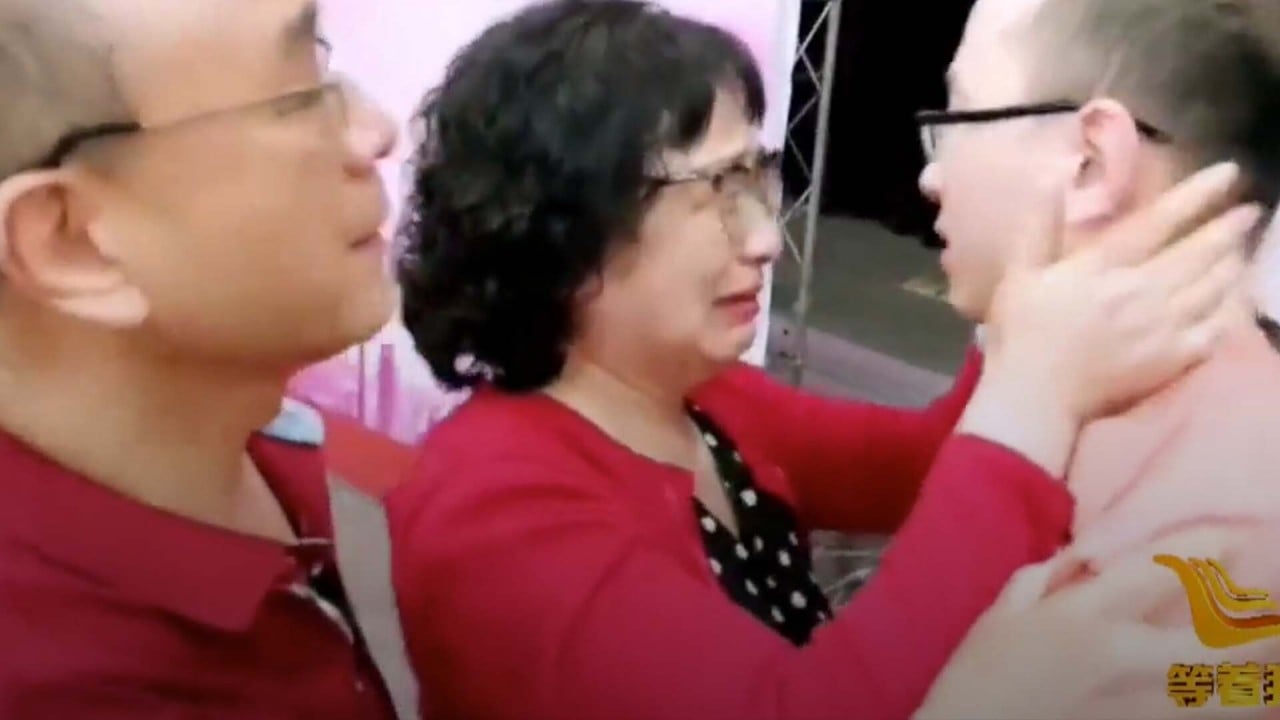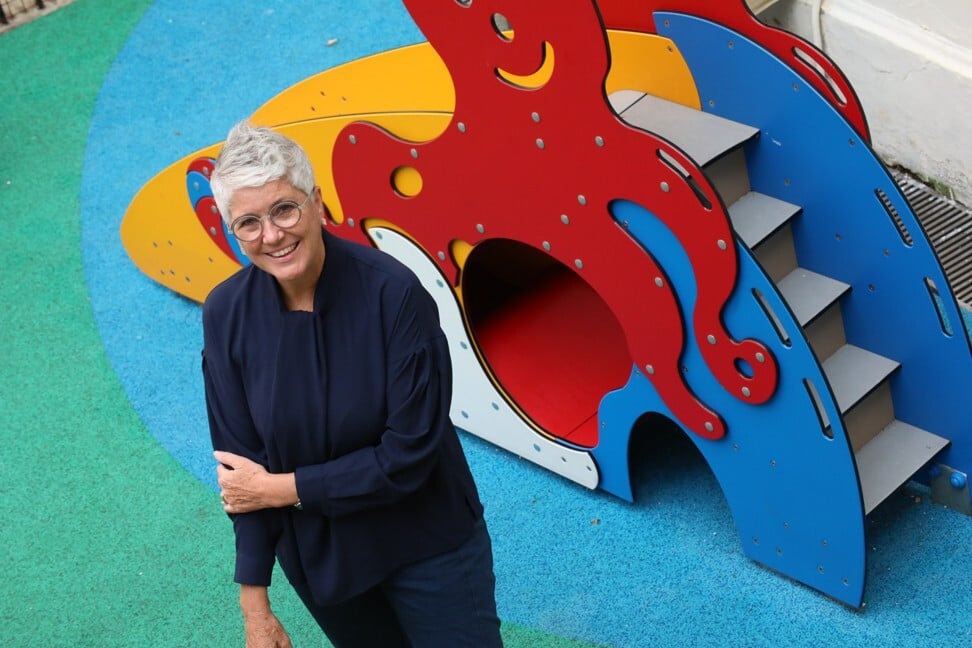
Adoptions in Hong Kong fall, with few children listed and adoptive parents ‘wary of taking those with complex profiles’
- Most children up for adoption have special needs, and that puts off potential adoptive parents
- Fear of being labelled ‘bad parents’ stops mums from giving up their babies for adoption
Negative attitudes are keeping down the number of babies available to adopt in Hong Kong, while couples willing to do so are wary about the children they choose, experts say.
The number of adoptions fell from 71 in 2016 to 59 last year. There was also a drop in how many Hong Kong children were taken in by foreigners, from 13 in 2016 to 10 last year.
‘A lot of tears’: son sees his Hong Kong birth mother after 60 years
Alia Eyres, CEO of Mother’s Choice, a charity which helps pregnant teenagers and children without families, says part of the reason for the decline in adoptions is the growing number of children with complex profiles.
For example, the charity has seen more babies exposed to drugs in their mothers’ wombs. This makes it harder to place the children with families willing to adopt.
She says there are three “common myths” surrounding adoption in Hong Kong.
The first is that mothers who give up their babies are “bad people”, the second is that adoptive parents cannot possibly love an adopted child like their own biological child, and the third is that adopted children will grow up longing for their birth parents, rejecting their adoptive ones.
She says this partly explains why there are so few children available for adoption, although there are 3,877 in residential care until they turn 18, unless they return to their parents or are adopted, according to official data.
“When there are these myths around adoption – that you’re better off leaving your child in residential care or foster care and not relinquishing your parental rights, even if you know you’re never going to be able to bring that child back home – that can be very damaging to children,” Eyres says.

Mother’s Choice is one of three accredited adoption agencies overseen by the SWD. The others are Po Leung Kuk and International Social Service Hong Kong.
Adoptive parents must be at least 25 years old, have no criminal record, be in good mental and physical health and have a stable income with monthly disposable income above the city’s median level. For a household of two, that is around HK$36,800. Single people can also apply to adopt.
The agencies and the SWD work together to match available children with willing adoptive parents, with consideration given to the parents’ socio-economic circumstances and ethnicity.
Eyres put the total number of families approved to adopt at 100 to 120.
Parents and would-be adopters told to put children’s needs first
A spokesman for the department’s adoption unit said adoptive parents often stated preferences about the age and health of the child, emotional and behavioural issues, types and level of disability, and birth family background.
He added that they were encouraged to “widen their child preferences” as most children available for adoption had special needs.
While it may be understandable that some couples hesitate to commit to raising a child with health or other issues, Eyres says: “There is a real lack of conversation around adoption in Hong Kong.”
Some discussion to break down the stigma and emotional pain over adoption has begun, led by adults who were adopted as well as adoptive parents.
A letter from his birth mother
Yann Cudennec’s most prized possession is a letter from the birth mother he has never met.
She was 16 and an unmarried Hongkonger when she wrote to her infant son in 1993, explaining why she was giving him away for adoption.
“I’m very sorry. I really do not want to leave you,” she said. “It’s because I wish you can have a happier and more stable family life … I don’t know if it’s a good choice. I only hope it will be good for you.”

Now 28, Cudennec was given the letter by his adoptive parents when he turned 18 and was about to start university. He remembers weeping for hours after reading that his birth mother loved and wanted the best for him.
He was adopted at four months by a Frenchman and his Malaysian-Chinese wife, who were living in Hong Kong and had an older daughter of their own.
Cudennec, who is ethnically Chinese and an event manager at a hotel, says he struggled with identity issues for most of his life.
It was not until he was at university in Montreal that he was finally able to say out loud: “I’m adopted.”
“There’s still a lot of negativity surrounding adoption,” says Cudennec.
After he returned to Hong Kong in 2016, he got together with some others to start a group for adult adoptees. It has about 30 members aged 18 to 70, who meet once a month over dinner.
Cudennec says sharing different perspectives of adoption with the others helped him feel less alone and he began to understand his own story better.

04:57
After 32 years, Chinese mother is finally reunited with her kidnapped son
It was through the group that he learned about adoptees trying to find their birth families and, in 2019, began looking for his birth mother.
Through his social worker, he received a response. He learned his birth mother was in Hong Kong and had a family of her own, but for now, she does not want to meet him.
He was prepared for that outcome, as he worked with the social worker to manage his expectations.
“We could cross paths on the MTR and I would never know,” he says. “I only reached out just to know that she was OK and in a way, to let her know that I am OK too.”
‘I had so many questions’
Much of Jo Jo Cheng’s life has centred around secrets. She was eight when she accidentally came across her adoption certificate in her mother’s drawer.
“I was so shocked. I had so many questions,” she recalls. But she did not tell anyone, partly out of loyalty to the couple she knew as her parents, a housewife and businessman with no other children.

03:08
‘Left-behind’ girl in China pleads for her parents
She learned that she was the 11th of 13 children born to farmers in the New Territories who were related to her adoptive mother. Her adoptive parents offered to adopt the baby to ease the family’s burden, on condition that the birth parents never contacted the girl.
Cheng was at university when her older brother reached out and that led to her attending another brother’s wedding, where she met her biological parents and siblings for the first time.
“It was not like the films,” she says ruefully. “It was like meeting strangers.”
But she never told her adoptive parents. After they died, she began seeing her biological family more regularly and has grown close to two of her sisters.
27 celebrities who adopted kids, from Hugh Jackman to Charlize Theron
Now in her forties and married to a Christian minister, one of her regrets is that she never spoke openly with her adoptive parents about how they raised her as their own.
“It would have been very important to say thank you to them, but I missed the chance,” says Cheng.
She and her husband have a six-year-old adopted daughter and are not hiding the truth. They hold a ceremony each year on the date they adopted her formally and also on the date they brought her home.
Cheng says she makes sure to tell her child every day that she is a blessing, as she knows that an adopted child can have feelings of abandonment.
“When I adopted my daughter, I also adopted her past. This is really important when you make a decision to adopt, although your relationship is not based on DNA. It‘s based on your time and your love,” she says.

Cheng’s approach resonates with Taiwan-born social worker Gretchen Ryan, 59, who with her American husband Jeff, 64, a banker, adopted five Chinese and Filipino children, now aged between 25 and 47.
She founded Adoptive Families of Hong Kong, a non-profit support group for couples who have adopted children.
She says Asian couples tend to keep adoption a secret, anxious to protect their children from pain.
Instead, she encourages them to learn to talk about adoption from the start, something she and her husband did with their children.
“We also need to talk about their biological families,” she adds. “This is a lifelong journey.”

